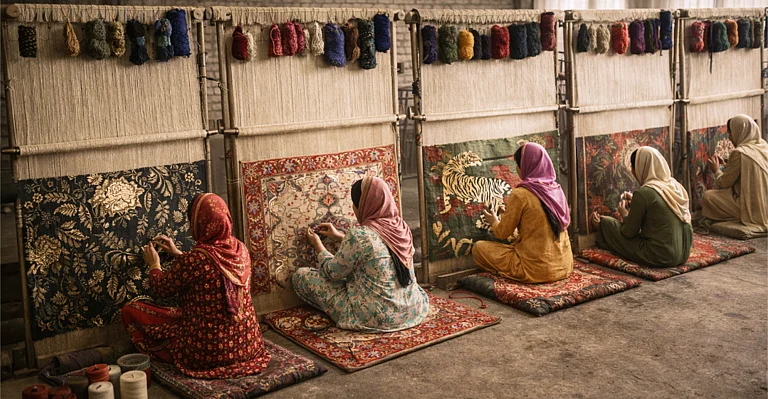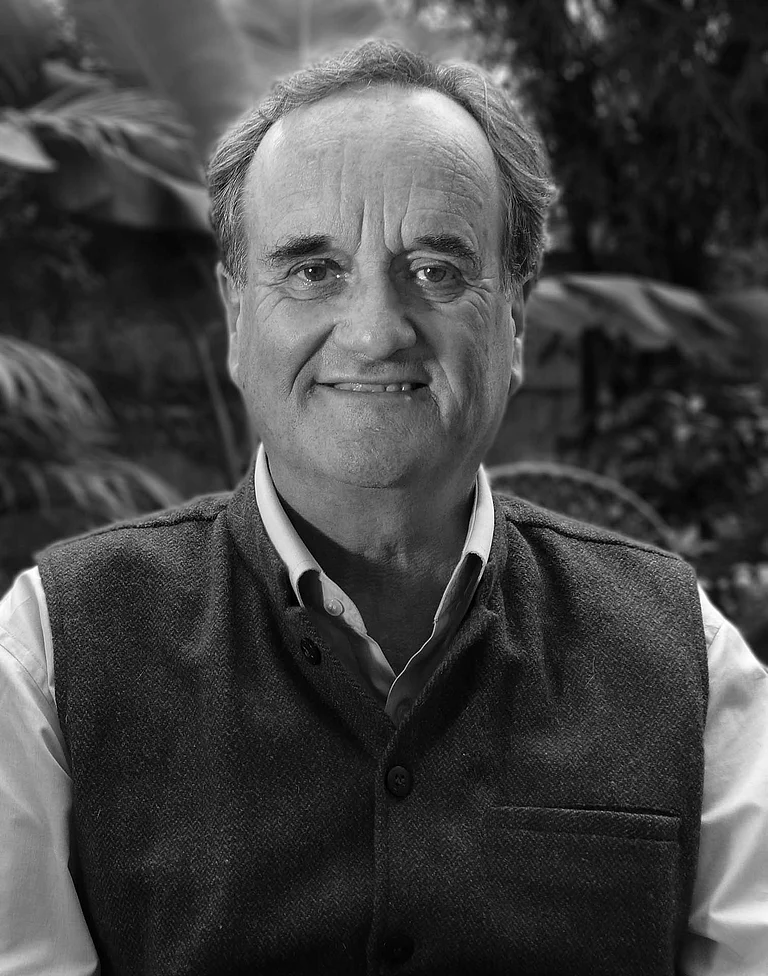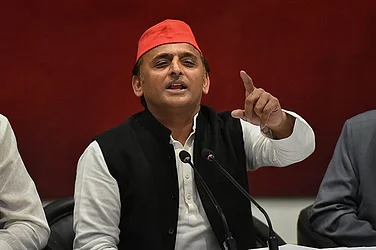When Vanessa Dougnac first came to India in 1998, it was as an intern at the Alliance Française of Delhi. She was a PhD student in comparative literature at the University of Bordeaux and had wanted to take a break from her “lengthy studies”. Little did she know, India would end up becoming the place she’d call home.
“Everything just happened naturally. I enjoyed my life in India, filled with adventures, interactions, friendships and discoveries. Journalism became a way for me to explore the many facets of an incredibly complex subcontinent. As time passed, I felt truly at home in India,” Vanessa Dougnac said in a conversation with Outlook.
Vanessa is married to a Haryana man and together they have a son who “is fluent in French, Hindi, and English, and likes to claim he is 100 per cent Indian and 100 per cent French.”
Vanessa Dougnac, who has been a practising journalist in India for 23 years and has always felt “a strong sense of belonging to this journalistic fraternity”, recently hit a roadblock when her working rights were revoked. She was given no reason or justification even after repeated requests.
She was also advised to change her profession to which she said, “But I am a journalist, a profession that I hold dear to my heart, and I cannot agree to give it up because of unproven accusations.”
Last month, Vanessa received a notice accusing her of writing articles that were "malicious", and harming "the interests of the sovereignty and integrity of India". The notice, Vanessa said, required her to respond to why her Overseas Citizen of India (OCI) card should not be cancelled.
And on February 16, Vanessa was forced to leave the country by the Indian authorities. In her public statement which she released while boarding her flight to Paris, she wrote, “I am writing these words in tears. Today, I am leaving India, the country where I came 25 years ago as a student, and where I have worked for 23 years as a journalist. The place where I married, raised my son, and which I call my home.”
It is believed that French president Emmanuel Macron raised Vanessa’s case with PM Narendra Modi during his Republic day visit but nothing came of the diplomatic talks.
In her statement, Vanessa has denied all allegations and imputations made against her and her conduct. “India is my home, a country which I deeply love and respect, and I have never engaged in any acts that are in any manner prejudicial to Indian interests as is being alleged,” she said in a statement released in January.
Vanessa began her journey as a journalist in India in 2001 and is believed to be the longest-serving foreign correspondent in India. “Journalism immediately became a passion for me, and I acquired my journalistic skills in India. Indian journalists were the ones who taught me journalism. By the end of the 2000s, a brilliant generation of journalists was emerging in the dynamic landscape of the Indian and South Asian press,” Vanessa told Outlook.
“They were brave and dedicated individuals, always seeking stories and information. I learned a lot from them. I felt a strong sense of belonging to this journalistic fraternity.”
Vanessa spent a lot of time on the road and over the years covered stories emerging from India, Nepal, Bangladesh, Pakistan, Sri Lanka, Afghanistan, Bhutan, and the Maldives, often travelling to many remote areas.
“My reportages were a way to capture the many facets of an incredibly complex subcontinent. In the last quarter of century, South Asia reassessed its central role on the international stage; I tried my best to reflect on the complexities of this evolution and its challenges. Over the years, I also developed a relationship with the French-speaking readership,” she said.
Vanessa was so fascinated by the subcontinent’s culture that even her holidays were spent exploring South Asia. “I spent my holidays exploring different parts of India and Nepal, especially the Himalayas, where I embarked on numerous trips. For instance, in 2018, I undertook a 1000 km solo horseback journey on the highest paths of the world, retracing the footsteps of an 18th-century Tibetan princess; the first part took me through Ladakh, and the second part led me from Jumla to the ancient kingdom of Mustang in Nepal,” she said.
When Vanessa had travelled back home to France the first time, on an Indian LML Vespa scooter, a three month adventure through India, Pakistan, Iran, Turkey, Greece, and Italy, she had found herself missing India when she reached home. That is when she had decided to come back.
“To bid farewell has been a tremendous sorrow,” Vanessa said in her statement which she released while boarding her flight back to Paris.
“Being a South Asia correspondent seeking to share with my French-speaking readers the complexity and richness of this region, was a privilege and an honour. I will cherish the memories I have of the warmth of the people and the beauty of this immense region.”
Vanessa's lawyers told Outlook that they will be challenging the Indian government's decision to cancel Vanessa's permission for carrying out journalistic activities before the Courts, and that they have full faith in the judiciary
In her statement in January, Vanessa had stated “there is a legal process to deal with such matters with which I shall cooperate. As the legal process is ongoing and the issues are pending consideration before the concerned authorities, I would request that the process is allowed to run its course and my privacy is respected during this time.”



























